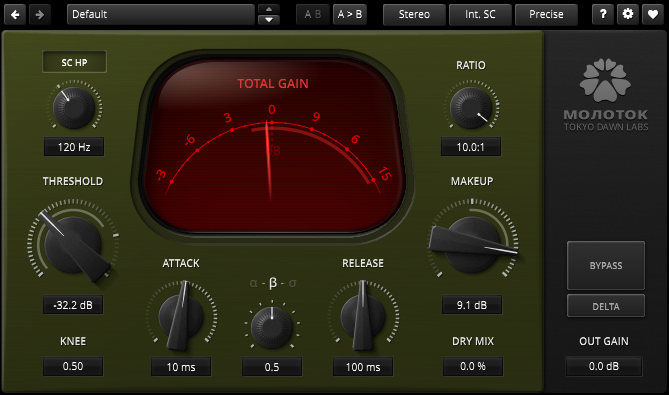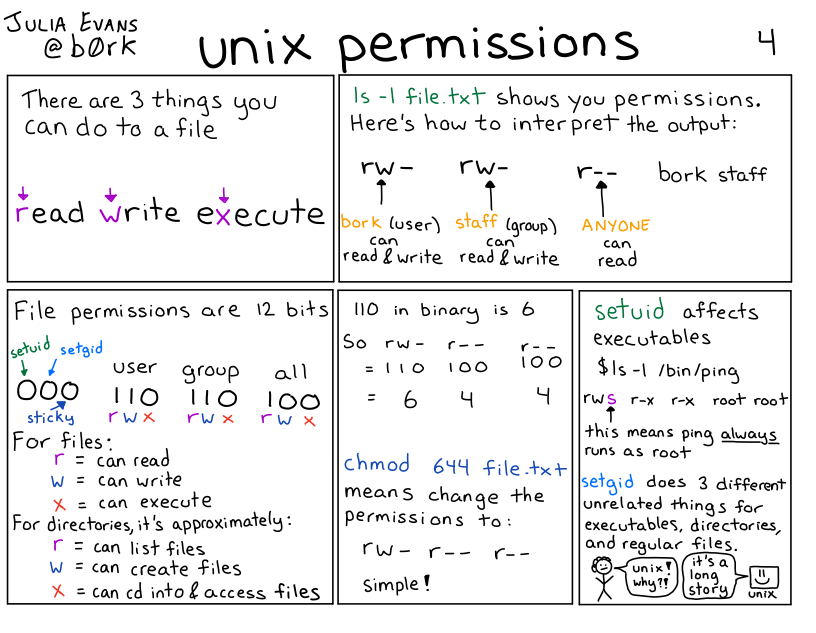Posts
5051Following
330Followers
505OpenPGP: 3AB05486C7752FE1
Jarkko Sakkinen
jarkkoIn my books, when ducking with kick some other channel, it beats ShaperBox3, LFOTool and similar plugins. You get both surgical and musical off-the-bad. The sound just feels right :-)
Molotok is also great alternative to give a shot when having either 1176 or dbx160 would be, or is already used. Worth of trying out.
#tokyodawn #molotok #plugins
Julia's Reruns Bot
b0rk_reruns@jvns.capermissions
Permalink: https://wizardzines.com/comics/permissions/
Jarkko Sakkinen
jarkkoJarkko Sakkinen
jarkkoAn init system that could both upscale and downscale and based on statically linked tight core would be awesome.
It could even be (partially) compatible with the same unit-file format.
In particular for this project it would make a lot of sense to implement such support because this is a need at scale:
https://github.com/uutils/coreutils
Could even gain sponsorships from embedded companies.
Jarkko Sakkinen
jarkkoSiltakatu is my home street [1] in #Tampere and I try to find solutions for various issues in software engineering, so by combining these two facts I got a company name 🤷
Sometimes my solutions suck tho but I do not imply anything about quality in my "company brand" ;-)
[1] The #Finnish word silta translates to bridge and katu translates to street.
Jarkko Sakkinen
jarkkoJarkko Sakkinen
jarkkoJarkko Sakkinen
jarkkoThe golden rule for writing code and debugging is obviously:
1. Do the most simplest and least scalable trial at first.
2. If that does not scale take a more powerful tool.
I certainly know how to use core files but it is MORE EFFORT.
Jarkko Sakkinen
jarkkoJarkko Sakkinen
jarkkoSince https://github.com/RustScan/RustScan claims to be fast I tried first a trivial SYN scan to my file server:
sudo nmap -sS -p- haaparousku
I got the list of ports in about one second (bit more or less). Then I tried rustscan and got bored enough to finally SIGINT it:
rustscan --addresses haaparousku
Not sure I get the improvement here… Also command-line is not “tactile :-)
Something definitely to improve in Rust command-line apps is not to think arguments as an object tree that you feed into clap crate. That’s just lazy.
Instead a better metaphor for a great command-line interface is something like a game pad that you can “play” easily. That’s why nmap has been relevant for decades.
The Penguin of Evil
etchedpixels@mastodon.socialGlue on pizza is apparently not enough, how about bogus AI mushroom foraging books
https://www.reddit.com/r/LegalAdviceUK/comments/1etko9h/family_poisoned_after_using_aigenerated_mushroom/
Thorsten Leemhuis (acct. 1/4)
kernellogger@fosstodon.orgRegistration for @linuxplumbersconf reopened
'"This year there was a huge demand to attend #LinuxPlumbers Conference in person and at last we were able to add more places and reopen the registration."'
https://lpc.events/blog/current/index.php/2024/08/16/registration-is-now-reopened/
Tero Kankaanperä
terokankaanpera@mastodontti.fiHallituksen halu poistaa työntekijöitä maasta on outo https://www.hs.fi/mielipide/art-2000010631106.html
Outo, typerä, paha, valitse adjektiivisi. Taantumuskopla on sitä kaikkea.
Jarkko Sakkinen
jarkkoIt would be sometimes useful if #QEMU w/o libvirt could interpret domain XML to some level.
Like for instance if you want to CI kernel, that would be one use case for this.
For the sake of example, here’s the QEMU command-line that I use as starting point for any kernel testing/CI:
qemu-system-x86_64 \
-M pc \
-monitor unix:monitor.sock,server,nowait \
-serial unix:serial.sock,server,wait \
-drive file=disk.img,if=virtio,format=raw \
-net nic,model=virtio \
-net user,hostfwd=tcp::10022-:22 \
-rtc base=localtime \
-nographic \
-chardev socket,id=chrtpm,path=${SWTPM_DIR}/swtpm-sock \
-tpmdev emulator,id=tpm0,chardev=chrtpm \
-device ${QEMU_TPM_DEVICE},tpmdev=tpm0 \
-bios /usr/share/edk2/ovmf/OVMF_CODE.fd \
"$@"
Jarkko Sakkinen
jarkkoJarkko Sakkinen
jarkkoJarkko Sakkinen
jarkkoWithout going details on questions concerning I said that security USED to be a property why we use virtual memory ;-) Now it is the place inhabited by the seasonal flu with its various generations, i.e. Spectre.


